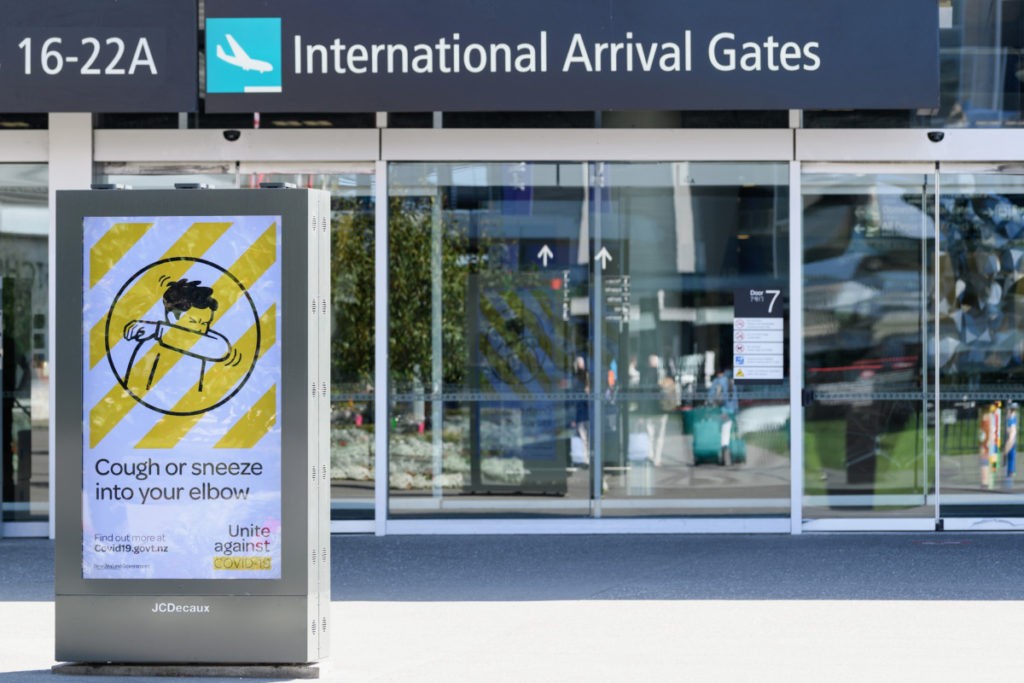The World Health Organization (W.H.O.), in a scientific brief released Thursday, warned the Chinese coronavirus can spread indoors — in poorly ventilated areas, particularly — through aerosol droplets.
While the W.H.O. has largely dismissed airborne transmission in spreading the virus in the past, it demonstratively shifted its tone in the brief which stated “some outbreak reports related to indoor crowded spaces have suggested the possibility of aerosol transmission, combined with droplet transmission” in places like fitness classes and restaurants.
“In these events, short-range aerosol transmission, particularly in specific indoor locations, such as crowded and inadequately ventilated spaces over a prolonged period of time with infected persons cannot be ruled out,” W.H.O. stated, while emphasizing that respiratory droplets — through coughing and sneezing — and fomite transmission can “also explain human-to-human transmission within these clusters.”
Takeaways, per the study:
- Current evidence suggests that transmission of SARS-CoV-2 occurs primarily between people through direct, indirect, or close contact with infected people through infected secretions such as saliva and respiratory secretions, or through their respiratory droplets, which are expelled when an infected person coughs, sneezes, talks or sings.
- Airborne transmission of the virus can occur in health care settings where specific medical procedures, called aerosol generating procedures, generate very small droplets called aerosols. Some outbreak reports related to indoor crowded spaces have suggested the possibility of aerosol transmission, combined with droplet transmission, for example, during choir practice, in restaurants or in fitness classes.
- Respiratory droplets from infected individuals can also land on objects, creating fomites (contaminated surfaces). As environmental contamination has been documented by many reports, it is likely that people can also be infected by touching these surfaces and touching their eyes, nose or mouth before cleaning their hands.
The brief added the virus is primarily spreading through people who are exhibiting symptoms, particularly when they are in “close proximity to others for prolonged periods of time.”
While the study said transmission can occur from people who have the virus but are not exhibiting symptoms, it explicitly states that the “extent to which this occurs is not fully understood and requires further research as an urgent priority.” It previously called such transmission “very rare.”
“The role and extent of airborne transmission outside of health care facilities, and in particular in close settings with poor ventilation, also requires further study,” it concluded.
The U.S. formally withdrew from the W.H.O. this week, fulfilling President Trump’s vow to sever ties with the UN-backed organization.
“The world is now suffering as a result of the malfeasance of the Chinese government,” Trump said in a May 29 address, contending the W.H.O. took part in assisting the Chinese government in covering up the severity of the outbreak.

A sign saying ‘cough or sneeze into your elbow’ is seen at the entrance of Christchurch International Airport in Christchurch, New Zealand. (Photo by Kai Schwoerer/Getty Images)
“Chinese officials ignored their reporting obligations to the World Health Organization and pressured the World Health Organization to mislead the world when the virus was first discovered by Chinese authorities,” the president said, highlighting China’s “total control over the World Health Organization, despite only paying $40 million per year compared to what the United States has been paying, which is approximately $450 million a year.”
“Because they have failed to make the requested and greatly needed reforms, we will be today terminating our relationship with the World Health Organization and redirecting those funds to other worldwide and deserving, urgent, global public health needs,” Trump said — a decision his failed challenger Hillary Clinton later called “self-inflicted disaster.”

COMMENTS
Please let us know if you're having issues with commenting.